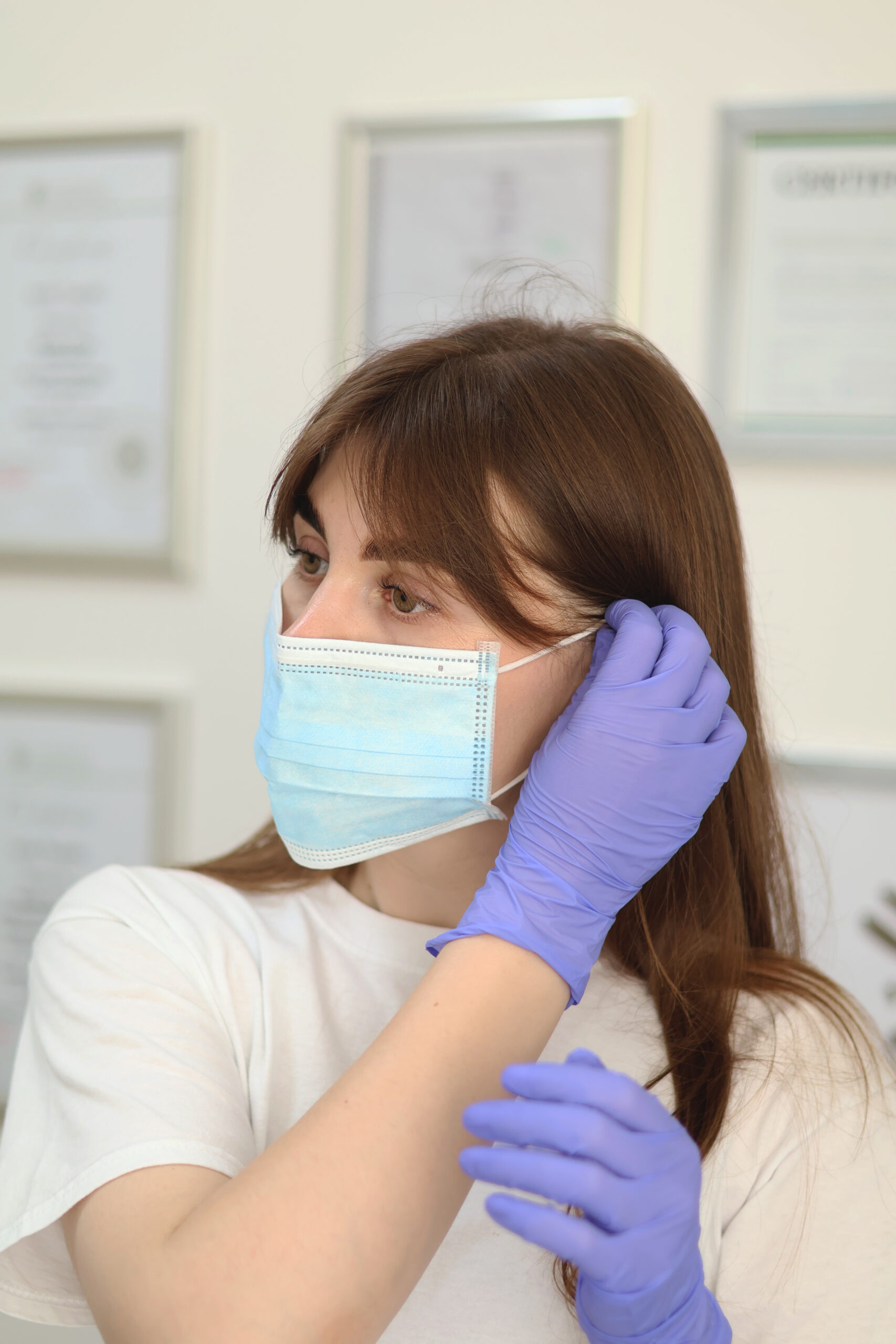You’ve probably heard about the ancient practice of herbalism, but how much do you really know about it? Herbalism is a traditional healing system that uses plants and their extracts to promote wellness and treat various ailments. With a history spanning thousands of years, herbalism has evolved and been passed down through generations, offering an alternative approach to modern medicine. In this article, we’ll explore the fascinating world of herbalism, its principles, and the potential benefits it holds for your overall health and well-being. So, get ready to discover the power of nature’s remedies and how they can enhance your journey towards a healthier lifestyle.
What is Herbalism?
Definition
Herbalism, also known as herbal medicine or phytotherapy, is a traditional practice that involves the use of plants and plant extracts for the purpose of healing and promoting overall well-being. It is a holistic approach to health that recognizes the interconnectedness of the body, mind, and spirit, and seeks to restore balance and harmony in the body through the power of nature. Herbalism encompasses a wide range of practices, from the use of medicinal herbs in teas and tinctures, to the application of herbal remedies in the form of salves and compresses.
History
The use of medicinal plants can be traced back to ancient civilizations, where they were employed for healing purposes. In ancient Egypt, for example, plants such as aloe vera and garlic were used to treat various ailments. In traditional Chinese medicine, herbs have been an integral part of healing practices for thousands of years. Native American tribes also had their own herbal remedies, utilizing plants like echinacea and sage. Throughout history, herbalism has been passed down through generations, each culture developing its own unique practices and wisdom surrounding the use of plants for medicinal purposes.
Traditional vs. Modern Herbalism
Traditional herbalism refers to the ancient practices and knowledge that have been handed down through generations, while modern herbalism incorporates scientific research and advancements in the field of herbal medicine. Traditional herbalism relies heavily on the use of whole plants and plant parts, whereas modern herbalism also utilizes standardized extracts and isolated compounds for more targeted effects. Both approaches have their merits and can be effective in promoting health and well-being.
Benefits of Herbalism
Promotes Holistic Wellness
One of the key benefits of herbalism is its ability to promote holistic wellness. Herbal remedies work with the body’s natural healing mechanisms and address the underlying causes of illness, rather than merely suppressing symptoms. By taking a holistic approach, herbalism recognizes the interconnectedness of the body, mind, and spirit and aims to restore balance and harmony to all aspects of our being.
Lower Risk of Side Effects
Compared to many pharmaceutical drugs, herbal remedies typically have a lower risk of adverse side effects. This is because herbs are natural substances that have evolved alongside humans, and our bodies are often better able to process and recognize them. While it is always important to exercise caution and consult with a qualified herbalist, herbal remedies are generally considered a safer alternative to synthetic medications.
Affordability
Herbal remedies are often more affordable than conventional medications. Many medicinal herbs can be grown in personal herb gardens or purchased at a fraction of the cost of prescription drugs. Additionally, herbal remedies can often be prepared at home, further reducing costs. This affordability makes herbalism a viable option for those seeking natural healthcare alternatives.
Accessible and Easily Available
Another advantage of herbalism is its accessibility. Medicinal herbs can often be found in local health food stores, herb shops, and even supermarkets. This ease of availability makes it convenient for individuals to explore and incorporate herbal remedies into their daily lives. Furthermore, herbalism is practiced in various cultures around the world, meaning that traditional herbal knowledge and remedies are readily accessible to those who seek them.

Commonly Used Herbs in Herbalism
Lavender
Lavender is a versatile herb widely used in herbalism for its calming and soothing properties. It is often employed to alleviate anxiety, stress, and insomnia. When used in essential oil form, it can be added to bathwater or inhaled through aromatherapy to induce relaxation and promote better sleep. Lavender can also be used topically to soothe skin irritations and minor burns.
Echinacea
Echinacea is a popular herb that is often used to support the immune system and prevent and treat the common cold and flu. It is believed to stimulate the production of white blood cells, enhancing the body’s natural defense mechanisms. Echinacea can be taken in the form of tea, tincture, or capsules to boost the immune system and promote overall wellness.
Ginger
Ginger is a well-known herb with a wide range of medicinal properties. It is commonly used for its anti-inflammatory and digestive benefits. Ginger tea is often consumed to soothe an upset stomach, alleviate nausea, and aid in digestion. Additionally, ginger has been found to have analgesic properties and can be used to alleviate pain and reduce inflammation.
Turmeric
Turmeric is a vibrant yellow spice that has been used medicinally for centuries. It contains a compound called curcumin, which has powerful anti-inflammatory and antioxidant properties. Turmeric is often used to relieve joint pain and reduce inflammation associated with various conditions. It can be incorporated into cooking or taken as a supplement to enjoy its health benefits.
Chamomile
Chamomile is a gentle herb known for its calming and relaxing properties. It is commonly used to promote better sleep and alleviate anxiety. Chamomile tea is a popular remedy for insomnia and can be consumed before bedtime to induce a sense of calm and aid in restful sleep. Additionally, chamomile can be used topically to soothe skin irritations and promote healing.
Methods of Preparation
Infusions
Infusions involve steeping herbs in hot water to extract their beneficial properties. This is commonly done with herbal teas, where the herbs are placed in hot water and left to steep for a certain period of time. The resulting infusion can be consumed as a tea or used topically, depending on the intended purpose.
Decoctions
Decoctions are similar to infusions but are used for tougher plant materials such as roots, bark, or seeds. This method involves boiling the herbs in water for a longer period of time to extract their medicinal compounds. Decoctions are often used for herbs with stronger medicinal properties or when a more concentrated preparation is desired.
Tinctures
Tinctures are concentrated herbal extracts made by soaking herbs in alcohol or a mixture of alcohol and water. The alcohol acts as a solvent, extracting the beneficial compounds from the herbs. Tinctures are known for their long shelf life and convenience, as they can be easily incorporated into daily routines by adding a few drops to water or other beverages.
Salves
Salves are herbal preparations made by infusing herbs into a carrier oil, such as olive oil or coconut oil, and combining them with beeswax to create a semi-solid ointment. Salves are commonly used topically to soothe skin irritations, promote healing, and provide localized relief from pain and inflammation.
Compresses
Compresses involve saturating a cloth or bandage in an herbal infusion or decoction and applying it to the affected area of the body. This method allows the medicinal properties of the herbs to be absorbed directly into the skin, providing targeted relief and promoting healing.

Conditions Treated by Herbalism
Digestive Disorders
Herbalism has a long history of treating various digestive disorders. Herbs such as peppermint, chamomile, and ginger are commonly used to alleviate symptoms of indigestion, bloating, and nausea. Additionally, herbs like dandelion root and milk thistle are known for their liver-protective properties and can be used to support liver health and promote detoxification.
Respiratory Issues
Many herbs have beneficial effects on the respiratory system and can be used to alleviate symptoms of respiratory issues such as coughs, congestion, and allergies. Mullein, marshmallow root, and licorice root are commonly used to soothe coughs and promote expectoration. Eucalyptus and peppermint are known for their decongestant properties and can help relieve nasal congestion.
Skin Conditions
Herbal remedies have been used for centuries to treat various skin conditions. Calendula, aloe vera, and lavender are often used in salves or creams to soothe and heal skin irritations such as rashes, cuts, and eczema. Tea tree oil is known for its antibacterial and antifungal properties and can be used topically to treat acne and fungal infections.
Insomnia
Sleep issues are a common problem, and herbal remedies can offer natural alternatives to aid in restful sleep. Herbs like chamomile, valerian root, and lemon balm are known for their calming and sedative properties, and can be used in tea or tincture form to promote relaxation and improve sleep quality.
Anxiety
Herbalism offers various options for managing anxiety and promoting emotional well-being. Herbs such as passionflower, ashwagandha, and St. John’s wort are often used to alleviate symptoms of anxiety and promote a sense of calm. These herbs can be taken as teas or in supplemental form, under the guidance of a qualified herbalist.
Safety and Precautions
Consulting a Qualified Herbalist
While herbal remedies are generally considered safe, it is important to consult with a qualified herbalist before using them, especially if you have any existing health conditions or are taking medication. A herbalist can provide guidance on selecting the right herbs for your specific needs and help determine appropriate dosages and durations of use.
Interaction with Medications
Some herbs may interact with medications, so it is important to inform your healthcare provider about any herbal remedies you are using. Certain herbs may enhance or reduce the effectiveness of certain medications, which can have potential health implications. Your healthcare provider can provide guidance on possible interactions and help ensure your safety and well-being.
Allergies and Sensitivities
As with any natural product, it is possible to have allergies or sensitivities to certain herbs. It is important to be aware of any potential allergic reactions and discontinue use if any adverse effects occur. If you are unsure about any specific allergies or sensitivities, consult with a healthcare professional or allergist before using herbal remedies.

Research and Controversies
Scientific Studies on Efficacy
There is a growing body of scientific research exploring the efficacy of herbalism and the medicinal properties of various herbs. While more research is still needed, several studies have shown promising results on the effectiveness of certain herbs in treating specific conditions. However, it is important to note that not all herbal remedies have been extensively studied, and the results may vary depending on individual factors.
Regulation and Quality Control
The regulation and quality control of herbal products vary from country to country. In some regions, herbal products are classified as dietary supplements and are therefore not held to the same rigorous standards as pharmaceutical drugs. This can lead to inconsistencies in the quality and potency of herbal remedies, making it important to source products from reputable manufacturers and ensure proper labeling and testing.
Ethical and Sustainability Concerns
The increasing demand for medicinal herbs has raised concerns about ethical sourcing and sustainability. Over-harvesting of wild plants can deplete natural resources and endanger certain species. Additionally, the cultivation and processing of herbs can have environmental impacts if not done sustainably. It is important to support ethical and sustainable practices by purchasing herbs from responsible sources and seeking out organically grown or wildcrafted options.
Integration with Conventional Medicine
Herbal Supplements
Herbal supplements are increasingly being used alongside conventional medicine to support overall health and well-being. It is important to note that herbal supplements should not be considered as replacements for prescribed medications, but rather as complementary support. They can be used to enhance the effectiveness of conventional treatments, reduce potential side effects, and promote overall wellness.
Collaboration with Healthcare Professionals
It is essential to involve healthcare professionals, such as doctors or naturopaths, in the integration of herbalism with conventional medicine. They can provide guidance, monitor your progress, and ensure that any potential interactions or contraindications are taken into consideration. Collaborating with healthcare professionals allows for a comprehensive and personalized approach to your health and well-being.
Herbalism Practices Around the World
Traditional Chinese Herbal Medicine
Traditional Chinese Herbal Medicine (TCM) is one of the oldest and most comprehensive systems of herbalism. It incorporates a vast array of herbs and herbal formulas that are used to address imbalances in the body and restore health. TCM views the body as a whole and seeks to harmonize the various systems within it. Herbs are often combined in specific formulations tailored to individual needs, and are used to support organ systems, balance energy, and promote overall well-being.
Ayurvedic Medicine
Ayurvedic Medicine, an ancient holistic system of medicine originating in India, also utilizes herbal remedies as part of its healing practices. Ayurvedic herbs are classified according to their taste, energy, and effect on the body. They are used to restore dosha imbalances and promote optimal health. Ayurvedic herbal formulas are typically personalized to the individual’s unique constitution and health needs.
Native American Herbalism
Native American cultures have a rich tradition of herbalism, with each tribe having its own unique herbal knowledge and practices. Various herbs, such as sage, cedar, and sweetgrass, are used for ceremonial purposes, to promote spiritual well-being, and for their medicinal properties. Native American herbalism is deeply intertwined with their cultural and spiritual beliefs, and often involves a spiritual component in the healing process.
Growing and Harvesting Herbs
Cultivating an Herb Garden
Growing your own herbs is a rewarding way to connect with nature and have a fresh supply of medicinal plants at your fingertips. Many herbs can be easily grown in home gardens or even in pots on balconies or windowsills. It is important to research the specific needs of each herb, such as sun exposure, soil quality, and watering requirements, to ensure optimal growth and potency.
Sustainable Harvesting Practices
If you prefer to harvest herbs directly from the wild, it is crucial to do so responsibly and sustainably. Only harvest from areas where the plant population is abundant and diverse, and never take more than what is needed. It is also important to respect local regulations and cultural practices related to wild harvesting. Additionally, consider growing your own herbs or sourcing from ethical suppliers who prioritize sustainable and regenerative farming practices. By doing so, you can support the preservation of medicinal plant species and their natural habitats.
In conclusion, herbalism offers a unique approach to health and well-being by harnessing the healing power of nature. By recognizing the interconnectedness of the body, mind, and spirit, herbalism promotes holistic wellness and provides natural alternatives for addressing various conditions. The wide range of herbs used in herbalism, along with different methods of preparation, allow for personalized approaches to healing. However, it is important to practice herbalism safely and responsibly, consulting with qualified herbalists and healthcare professionals, and being mindful of potential interactions and allergies. With its rich history and ongoing research, herbalism continues to evolve and integrate with conventional medicine, providing individuals with a well-rounded approach to their health. Whether through traditional practices or adapting to modern advancements, herbalism remains a valuable tool for promoting well-being and embracing the healing power of plants.
